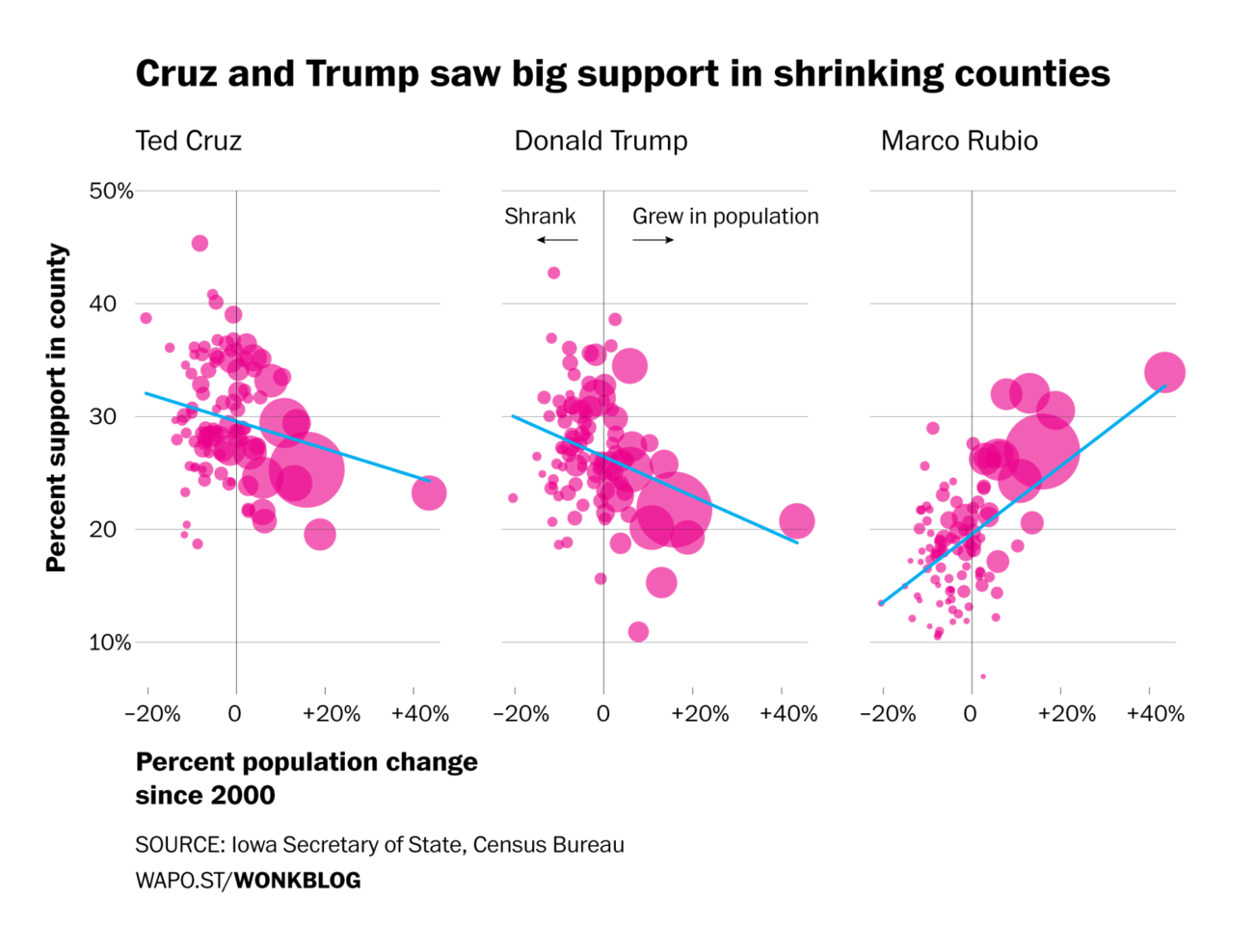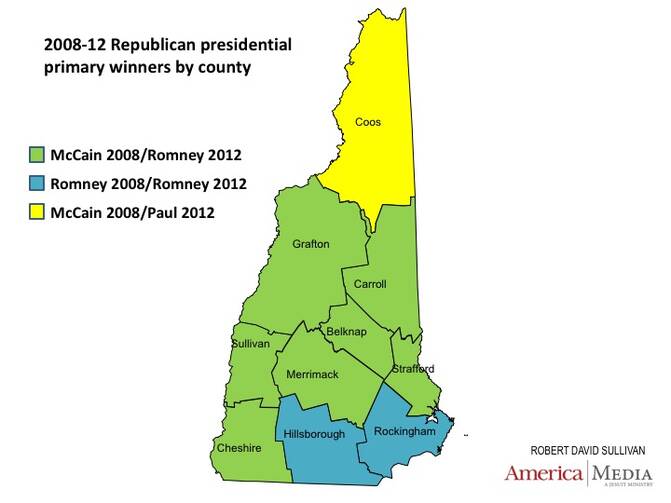Marco Rubio didn’t win Iowa, but he won in Iowa by finishing ahead of Ted Cruz and Donald Trump in more populated counties, such as Polk (Des Moines), that come closer to resembling the United States as a whole. Similarly, Hillary Clinton probably won’t win the New Hampshire primary, but she could very well win the two counties (Hillsborough and Rockingham) that are more suburban, and thus more predictive of future primaries, than the quirky, all-white, liberal small towns that typify northern New England and almost nowhere else.
Would it be fair for Clinton to become the frontrunner for the Democratic nomination after losing New Hampshire and essentially tying in Iowa? Would it be fair for Rubio to become the favorite for the GOP nomination after finishing third in Iowa and perhaps third in New Hampshire as well? From a mathematical point of view, yes.
Think of public opinion polls. Because different demographic groups have different response rates, it’s too costly and time-consuming to keep calling people until you get a sample size that reflects the voting population. What if your random phone calls produce a sample of 700 men and 300 women? The solution is to “weigh” the women’s responses more heavily so that their preferences end up accounting for half the poll results. In that situation, if the men break 2-to-1 for Donald Trump and the women break 3-to-1 for Marco Rubio, the pre-weighed result would put Trump ahead, but that that wouldn’t reflect reality. The weighed results would put Rubio a bit ahead, and that would better capture an electorate where women vote in numbers as great (usually greater) than men.
The Washington Post’s Jeff Guo has a good explainer on why Rubio was treated as the winner coming out of Iowa, and it’s not as facile as Rubio beating the expectations the media set before the caucuses: “In Iowa, Rubio was especially successful in more urban, educated, places, while Trump and Cruz battled it out for the rest of the state. The results could be summed up by this narrative: Trump seemed to represent a shrinking, in part dying segment of America. Rubio represented the opposite—a growing, and more educated group of voters. Cruz's voters shared characteristics with Trump's, though the numbers didn't tell as dramatic a trend.”
In a preview of Iowa, I noted the “loser” counties with declining population and wondered whether Trump would do well in places that feel left behind by the 21st-century economy. He did pretty well in these counties, but Rubio caught up to him in the minority of counties that are growing. Since most of America’s voting population live in growing counties, and in counties with more college graduates and more religious diversity than the Iowa counties where Ted Cruz dominated, there is a sound basis to the theory that Rubio is more likely to win later primaries in states like California, Maryland and North Carolina.

We’ll see whether last weekend’s debate slows Rubio’s momentum in New Hampshire, but if he does well in the Boston exurbs in the southern part of the state, there’s good reason to believe he can eventually win enough delegates for the nomination. If Trump pulls out a narrow win in New Hampshire by sweeping “loser” Coos County in the far north, or if Kasich finishes strongly on the basis of the all-white, liberal, covered-bridge small towns of Grafton County, we’ll have a dramatic Tuesday night, but not necessarily a strong predictor for the rest of the primary campaign. (See “Nine Maps That Explain the New Hampshire Primary.”)
By the same reasoning, if Sanders wins big in New Hampshire on the basis of landslide margins in the most Vermont-y parts of the state, he’ll have reason to celebrate. But Berniacs will have no cause to complain if political analysts continue to dismiss his chances of winning the nomination; he’ll have to win somewhere that’s more urban, less white and a better representation of the national Democratic Party.
If that’s unfair, or an example of “spin,” there’s only one solution: Don’t let Iowa and New Hampshire be the first two states to vote anymore.








